1. Shop at the bulk bins to cut out the plastic packaging entirely if you're at the grocery store. Be sure to bring your glass containers so you don't have to use the nearby plastic bags!
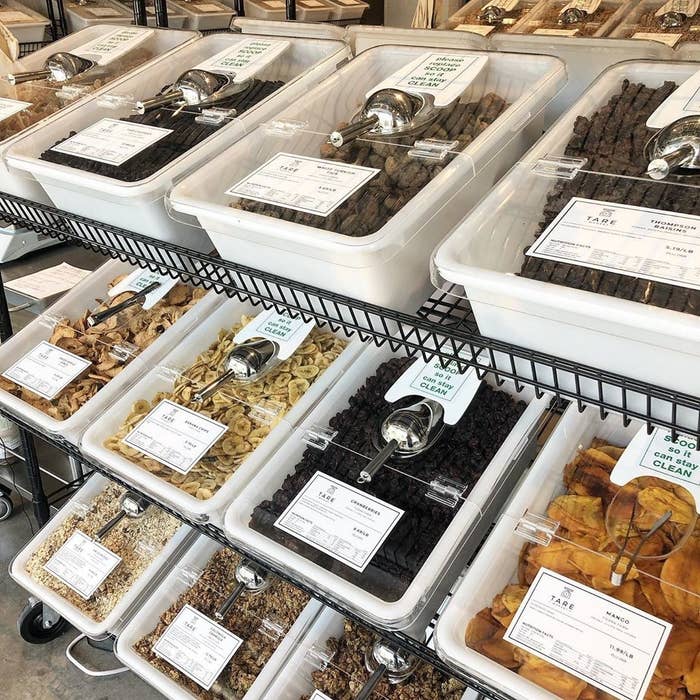
2. Or, frequent local farmer's markets and stock up on an abundance of fresh foods so you can rely on pre-packaged meals less. You'll find that the fruits and veggies here won't even have those plastic stickers on them. Make sure you bring your own reusable totes so you don't have to ask for a plastic bag.
3. Carry a set of mesh reusable produce bags with you so you can forgo those annoying plastic green produce bags that are always so hard to open, which we're taking as a sign that the universe really wants you to stop using so much dang plastic.

4. Stock up on reusable grocery bags (or raid your closet if you're already the tote bag queen!) and stop adding to the mountain of plastic bags that are currently crowding the cabinet under the sink.
5. Stop buying frozen meals! We get it, some days you're really busy and popping something in the microwave is the easiest option. Unfortunately, most of these meals are packaged in plastic-lined trays — and they're not even necessarily that good for you.
6. Invest in glass food storage containers, which will last you a lot longer than those plastic to-go containers you've been using. They're really great for meal prepping, and you can freeze them so you don't have to turn to those store-bought frozen microwaveable meals we were talking about. See, it all comes full circle!
7. Try reusable silicone bags for storing leftovers or packing lunches. These ones are dishwasher-safe and BPA-free so you can forget about chemicals leaching into your food. Use them in the microwave to prevent food from splattering, toss them in boiling water to steam veggies, or store them in the freezer, too.
8. Cover leftovers with beeswax wraps, a sustainable, eco-friendly alternative to plastic wrap or aluminum foil. It's made of organic cotton, beeswax, jojoba oil, and tree resin, and the packaging is made of 100% recycled paper and biodegradable cellulose, which comes from plants. The heat from your hands softens the wrap so you can smooth it over containers or food. Then, the wax cools and hardens, forming a protective seal. And! They're washable; just make sure you use cool water so as to not melt the wax and let them air dry.
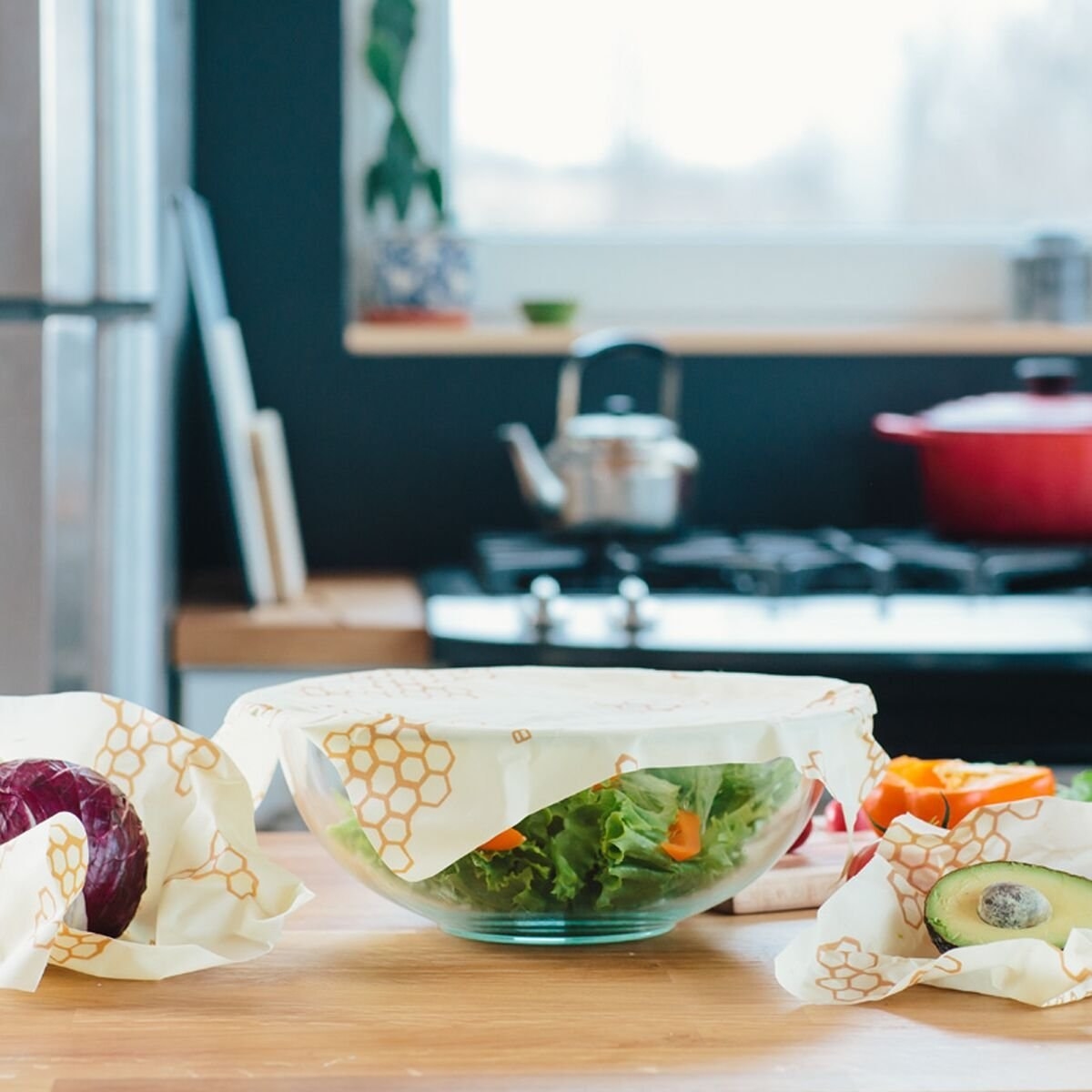
9. Use a veggie dicer and spiralizer instead of buying plastic-wrapped pre-chopped veggies. Yes, it's made of plastic, but you'll only have to buy it once, and it'll prevent even more plastic packaging from ending up in landfills.

10. Toss your regular bin bags in favor of compostable trash bags. They're made of plant starches and are free of polyethylene, a common ingredient in plastic trash bags. Store them somewhere cool or they can degrade and break. You should also avoid dumping lots of liquids in the trash as that can break them down faster too.
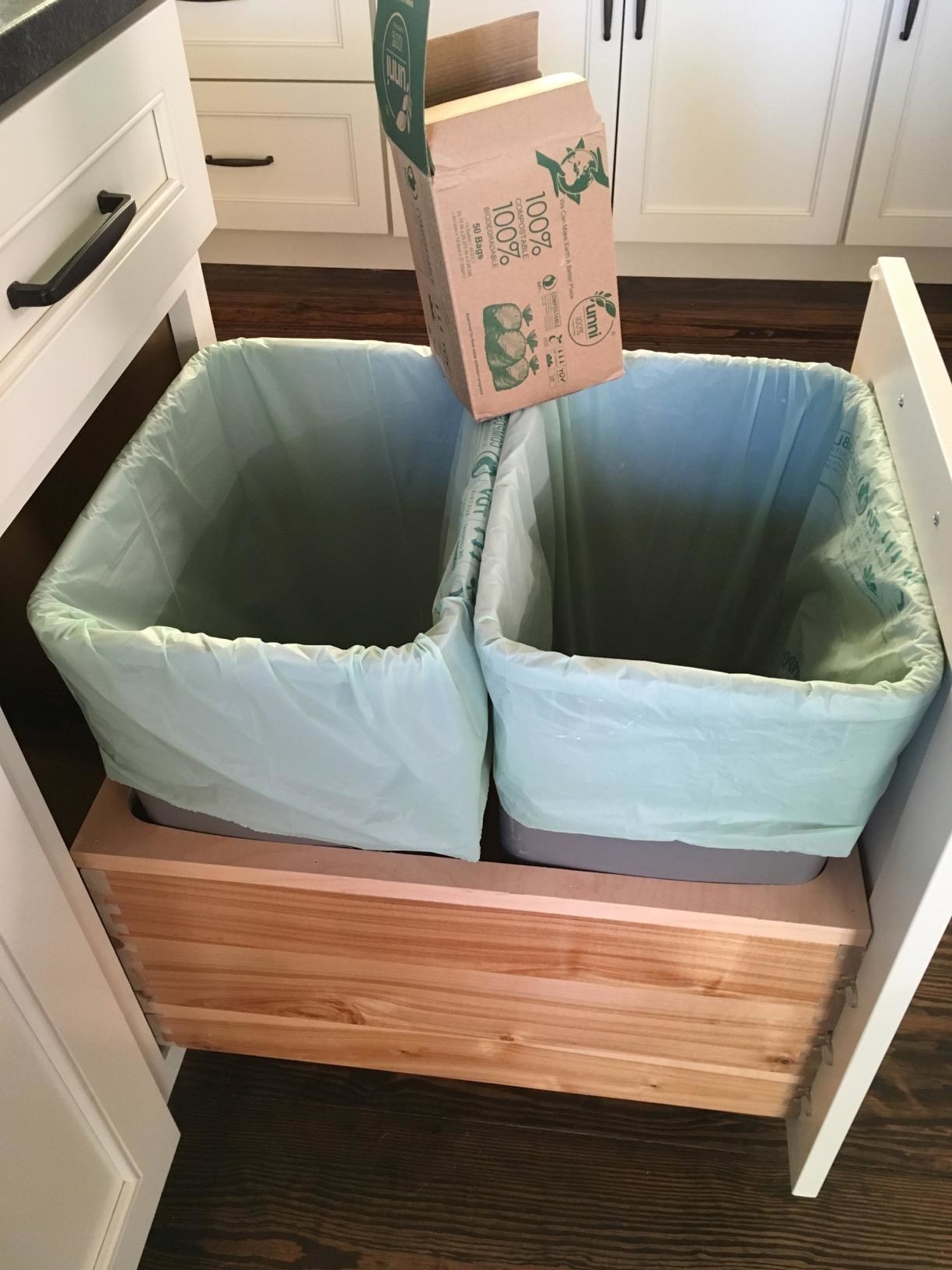
11. Make fizzy drinks at home with a water carbonator. This way you can make a smaller ecological footprint without giving up your seltzer waters and soda. The machine is made with plastic, but it can save countless numbers of plastic bottles from ending up in the trash.
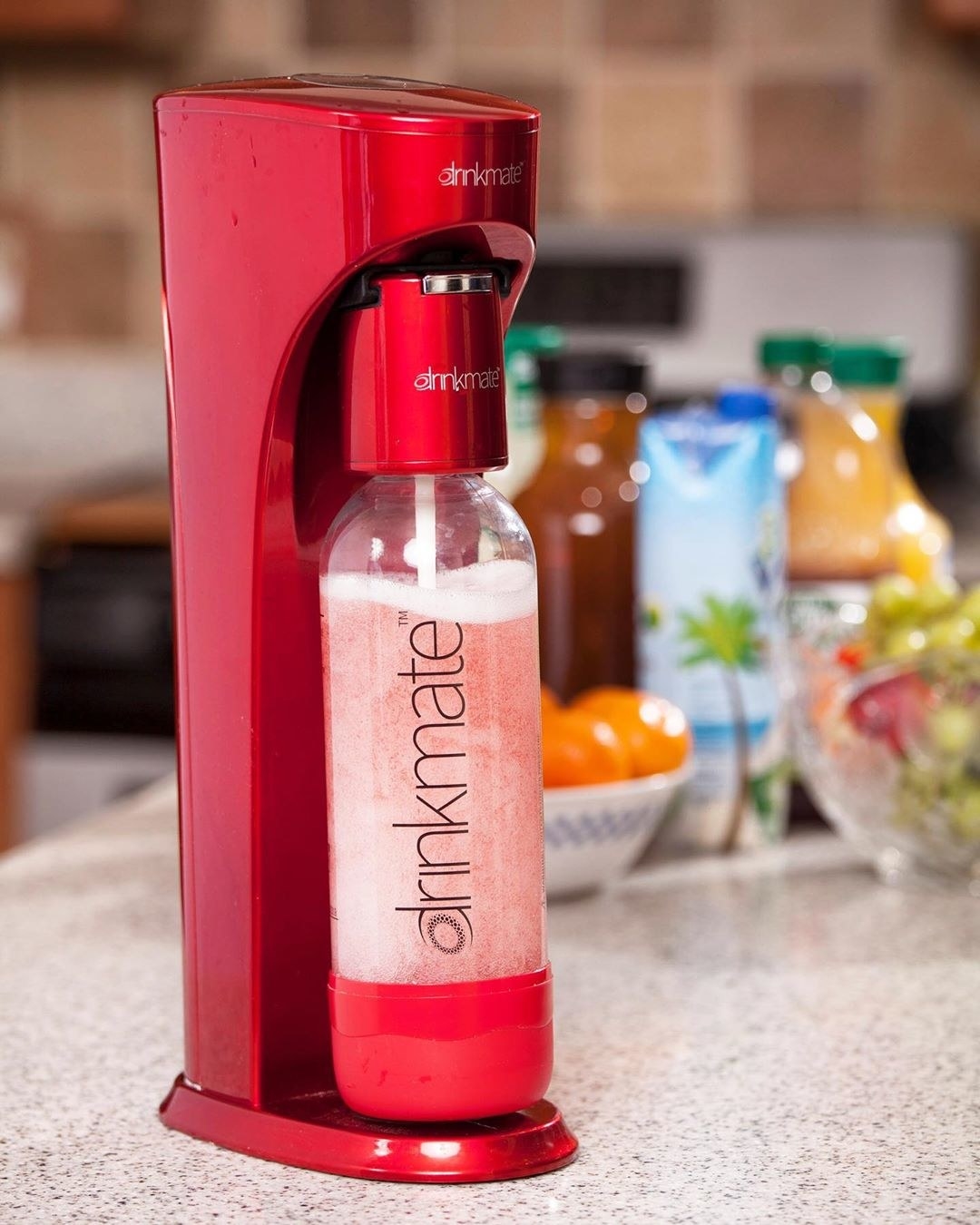
12. Bring silicone straws with you so you can ditch plastic straws in your daily iced coffee. Many places are phasing out plastic straws in favor of more eco-friendly options, but we all know paper straws are absolute garbage and break down after just a few minutes. Fortunately, silicone straws have your back.
13. Sip your beverages through avocado straws, because yes people, there are avocado straws. Some geniuses somewhere decided to turn avocado pits into straws and this is the result. They'll last you between eight and 10 uses depending on what you're drinking and can be washed with water and a brush cleaner.
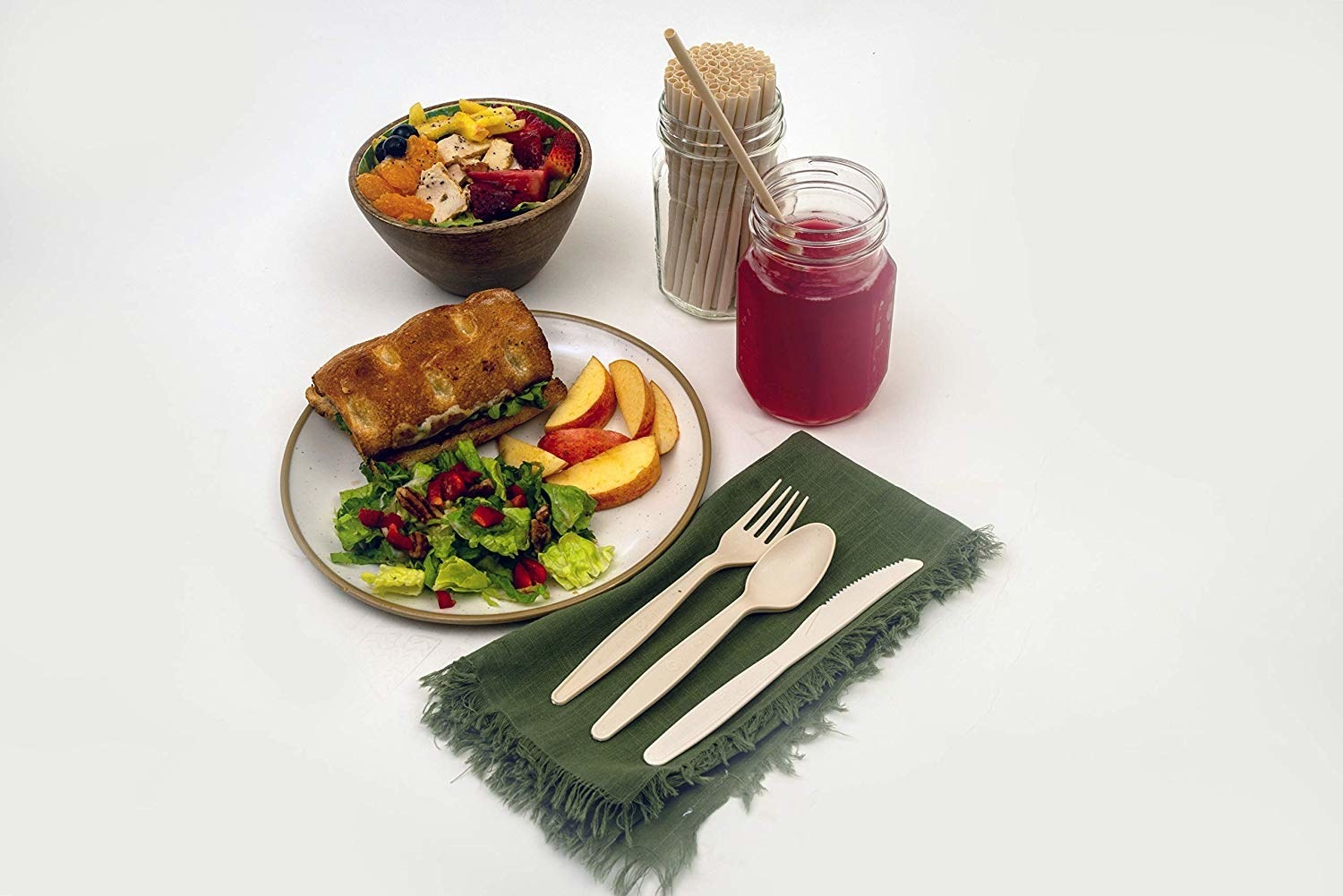
14. Serve your drinks with environmentally-friendly collapsible metal straws. These bad boys come with a silicone tip so you don't accidentally damage your lips or teeth. You'll also get a cleaning brush and a practical carrying case.
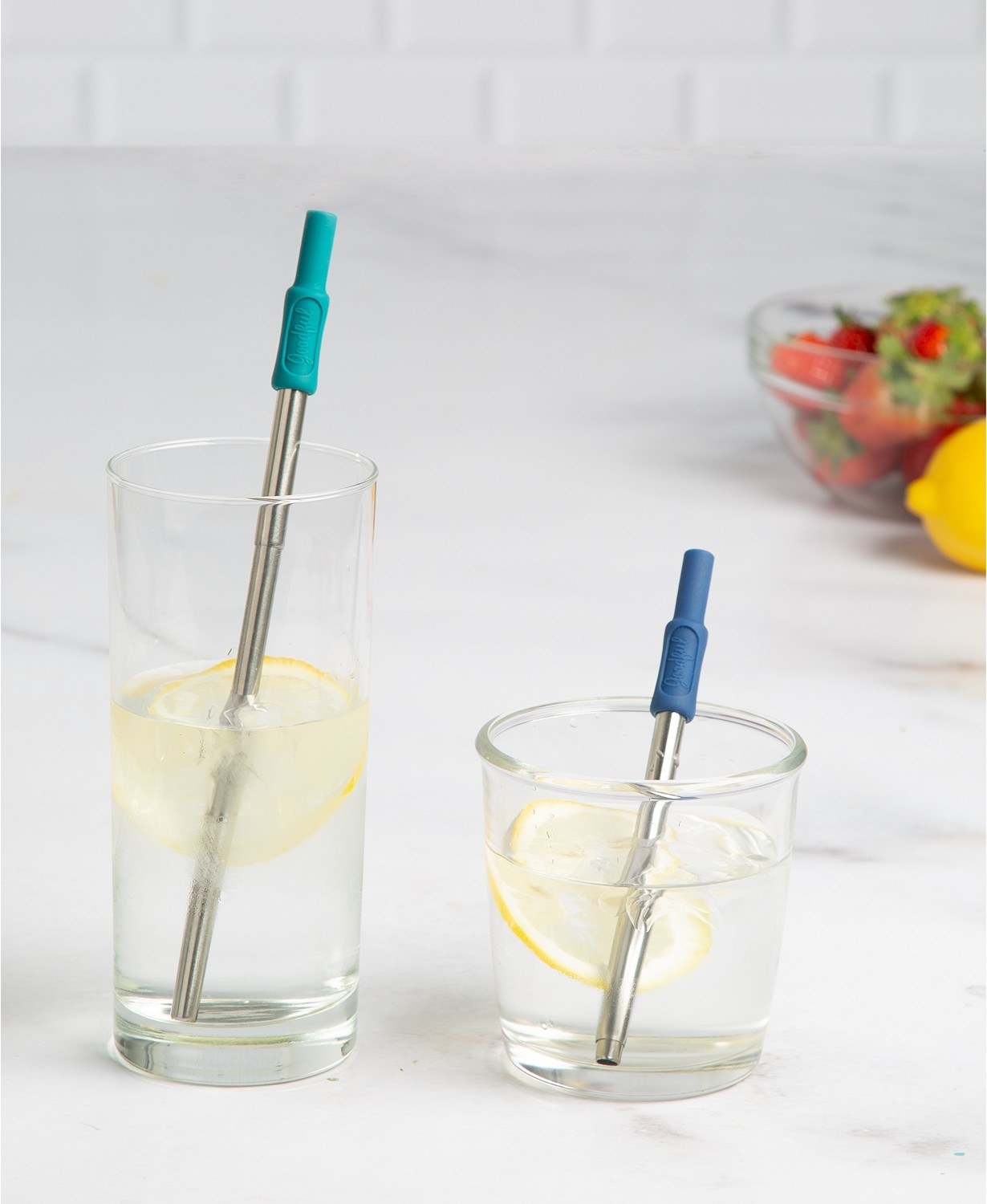
15. Enjoy your morning brew in a Contigo travel mug and turn down plastic or paper cups. And thanks to its vacuum insulation, it'll stay hot or cold much longer anyway.
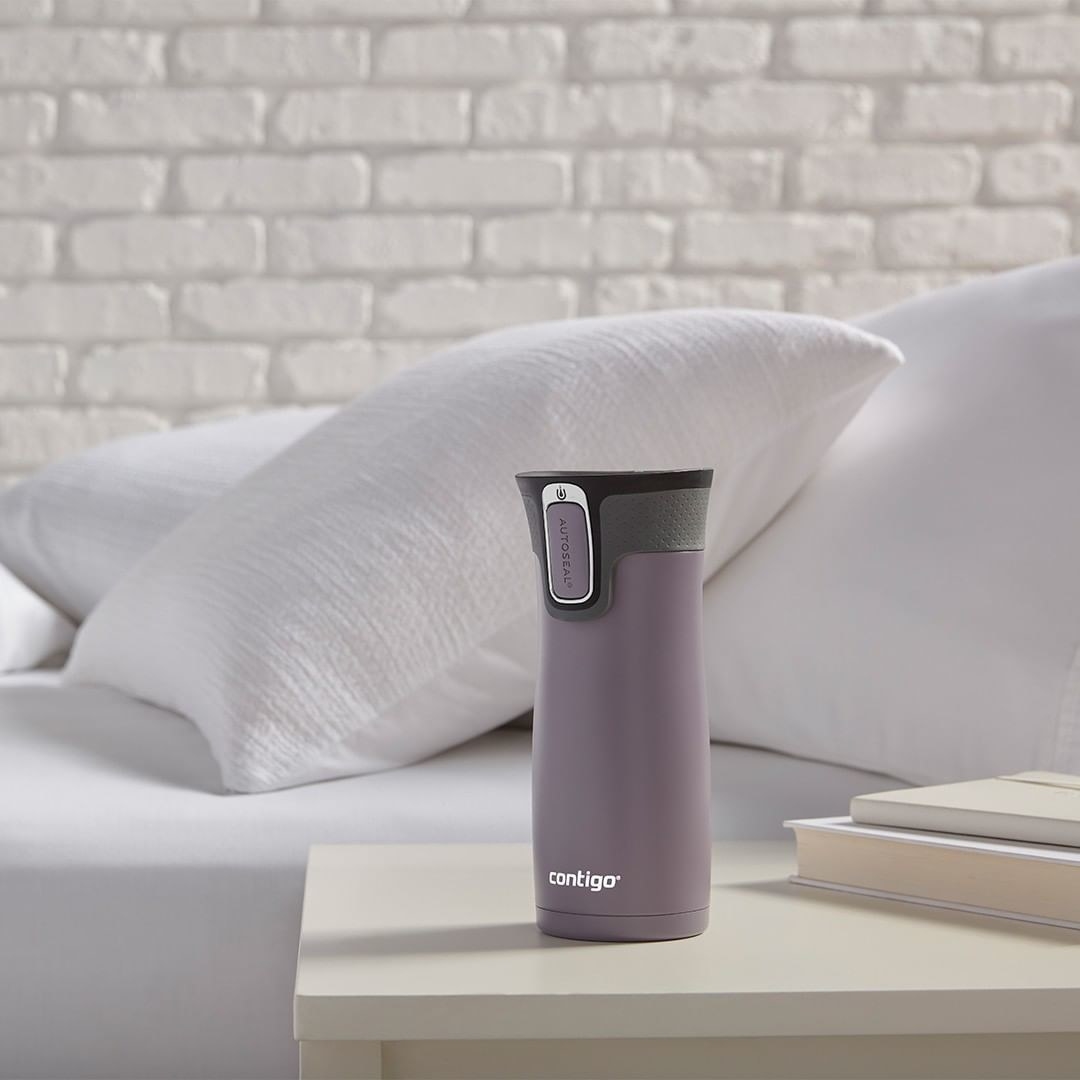
16. Steep your Earl Grey or English breakfast in a dishwasher-safe iced tea tumbler and say no thanks to overpriced tea (and its plastic cup) at a cafe. And don't worry, there's a stainless steel filter inside to separate the water and your tea leaves.

17. Replace your plastic-wrapped single-use paper filters with a reusable hemp coffee filter so you can still enjoy your requisite three cups of coffee to get you through the day without slowly killing the environment.
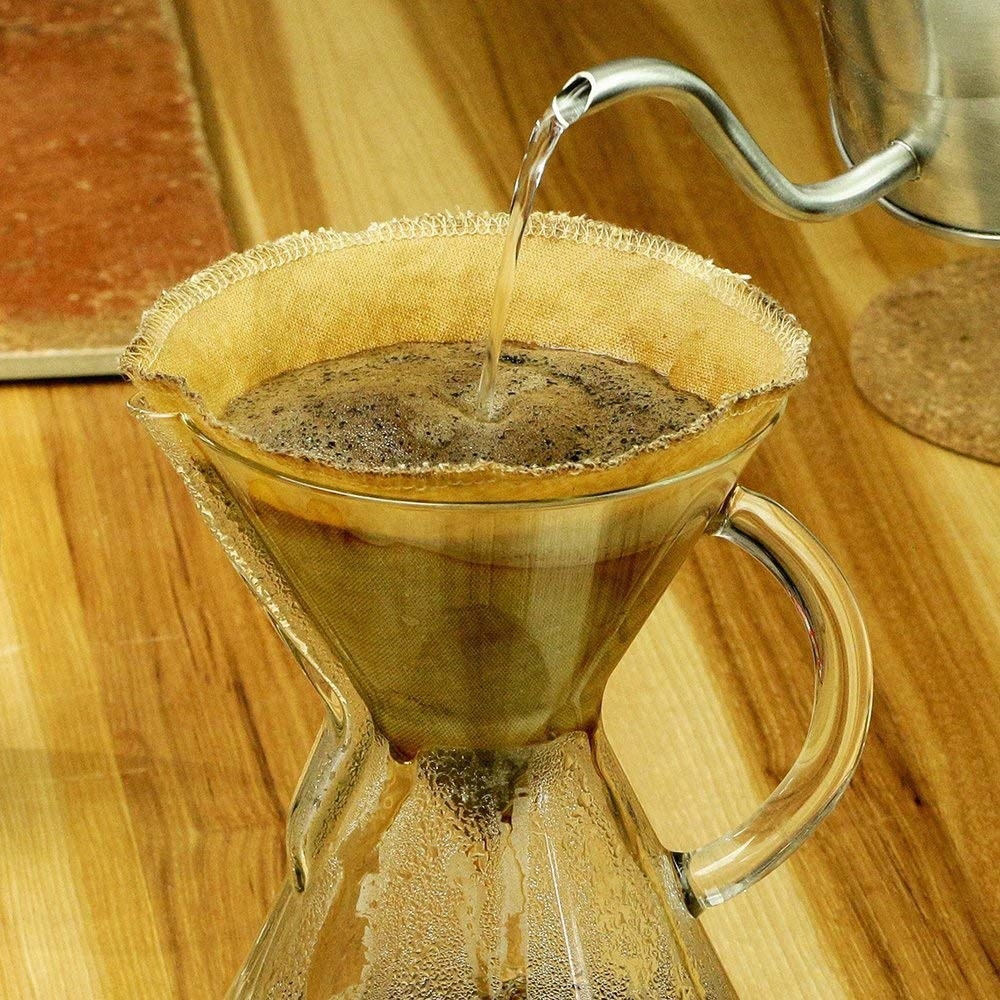
18. Stay hydrated during the day with a Nalgene water bottle. This way you can cut down your plastic waste while saving money. Your body will thank you by...keeping you alive.
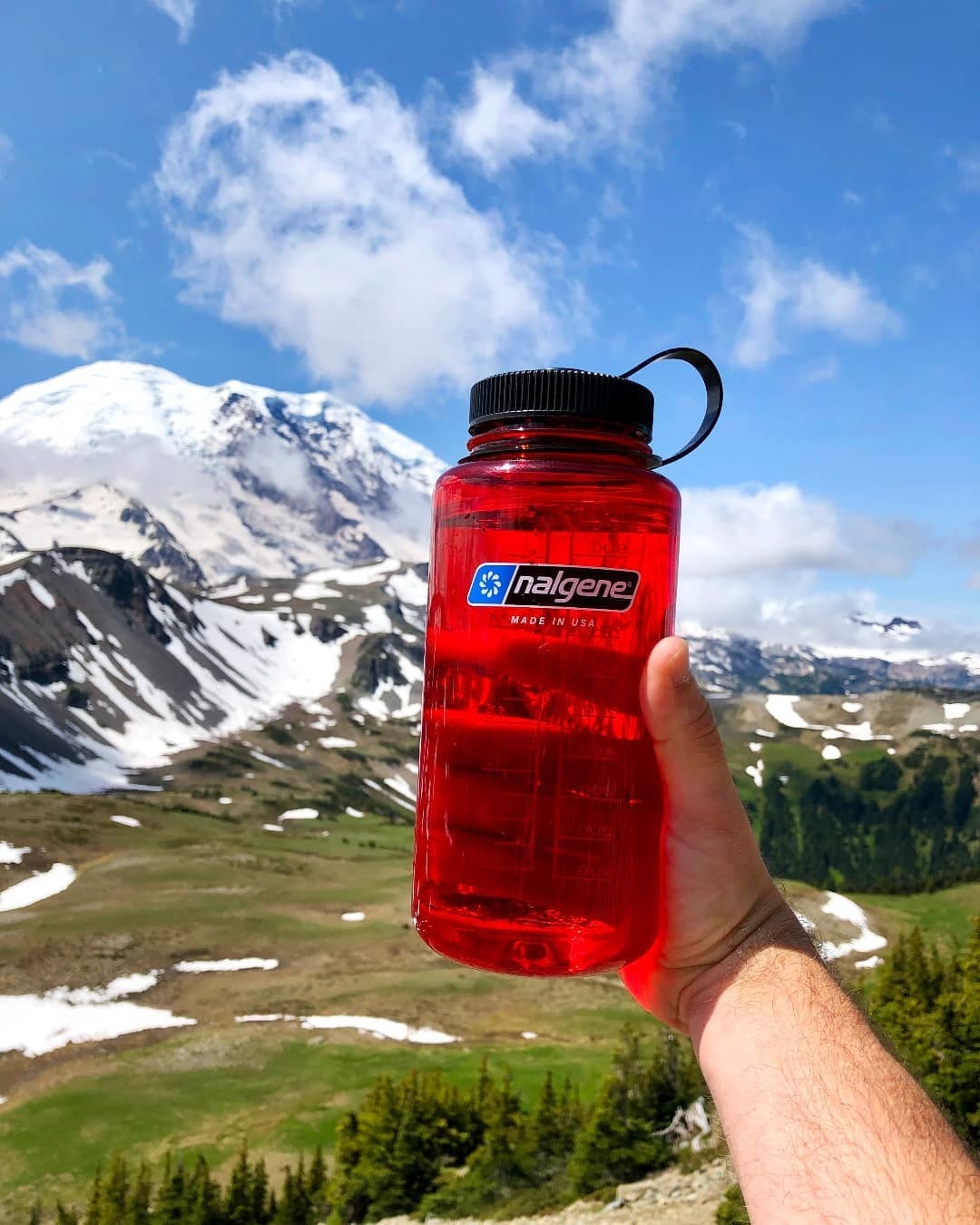
19. Ditch the wasteful and expensive fruit juices ($15 for celery sweat? No, thank you!) and make them at home with a juicer.

20. Eat lunch using a set of travel utensils rather than using a plastic set that you'll throw away immediately after using. This one comes with a fork, knife, spoon, chopsticks, two metal straws, a straw cleaner, and a handy carrying case.
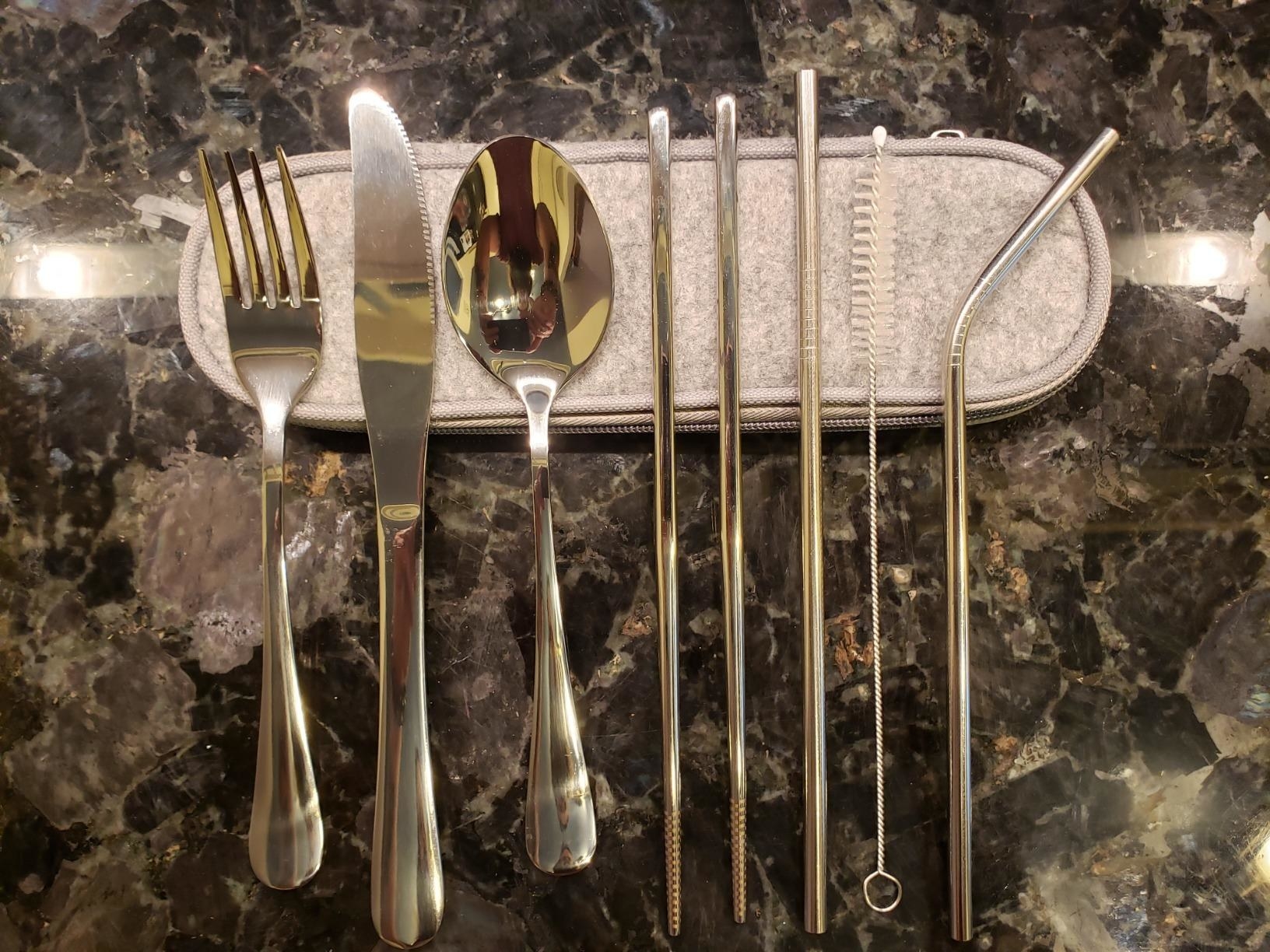
21. Let coconut oil (in a glass jar!) impress you with its endless uses in the kitchen. It has a pretty neutral flavor and is a great substitute for butter, which often comes wrapped in plastic, and other bottled oils. Coconut oil is also a great makeup remover and body/hair moisturizer.

22. Clean with natural products like baking soda and vinegar so you can avoid bottled sprays and cleansers. These DIY cleaners work just as well as store-bought versions, will save you money, and may even convince you to permanently drop all other disinfectants.
23. Opt for rubber gloves instead of plastic ones if you're cleaning and want to avoid getting your hands dirty. They're latex-free and come with an odor-resistant inner flock lining to absorb moisture. And, they have grippy bits on the palm and fingers so you won't drop any dishes.
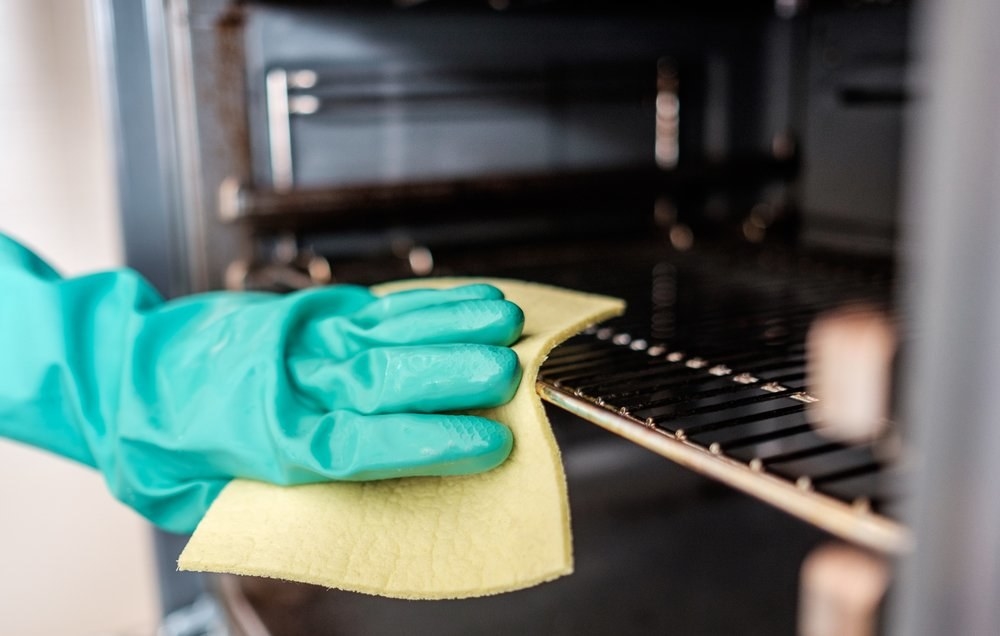
24. Swap your sponges, which are often made from plastic, for natural cleaning cloths. They're made from wood fibers and are machine-washable so they can tackle kitchen messes longer than your plastic sponges or paper towels ever could.

25. Scrub away leftover food and baked-on bits with a durable dish brush. Over time the bristles may flatten, meaning you'll need to replace the brush head — fortunately, they're compostable!

26. Fill your dishwasher with detergent powder that comes in a recyclable box instead of a plastic tub. It's unscented, which is great for those who are sensitive to strong odors.
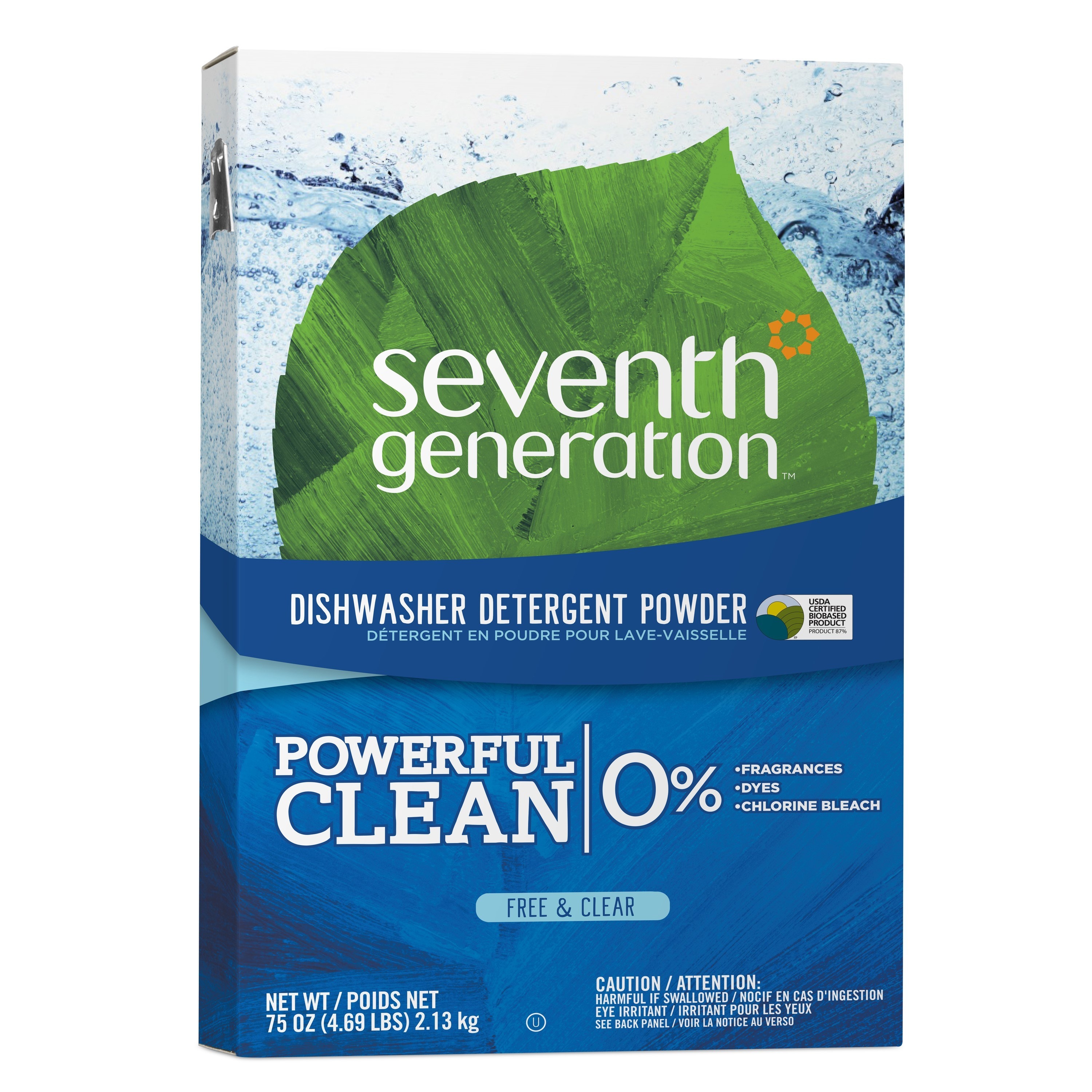
27. Consider whether you can replace your kitchen items with non-plastic versions when they break. Those stained plastic food storage containers you've been using for years and that are getting kinda stinky? Yeah, you should definitely replace those with durable glass versions.
28. Switch to sturdy bamboo drawer dividers to keep your utensils organized. While you don't need to buy one right away if your plastic version still works, this swap is an easy one if you want to start phasing out plastic from your kitchen.
29. Exchange your plastic cooking utensils for a stainless steel set that'll look chicer than their plastic counterparts. This is another quick fix to consider once your plastic utensils are ready to be tossed.

30. Grow your own herbs — which often come in wasteful plastic containers at the store — with an indoor herb garden kit. Now you can flex your green thumb *and* help the environment.
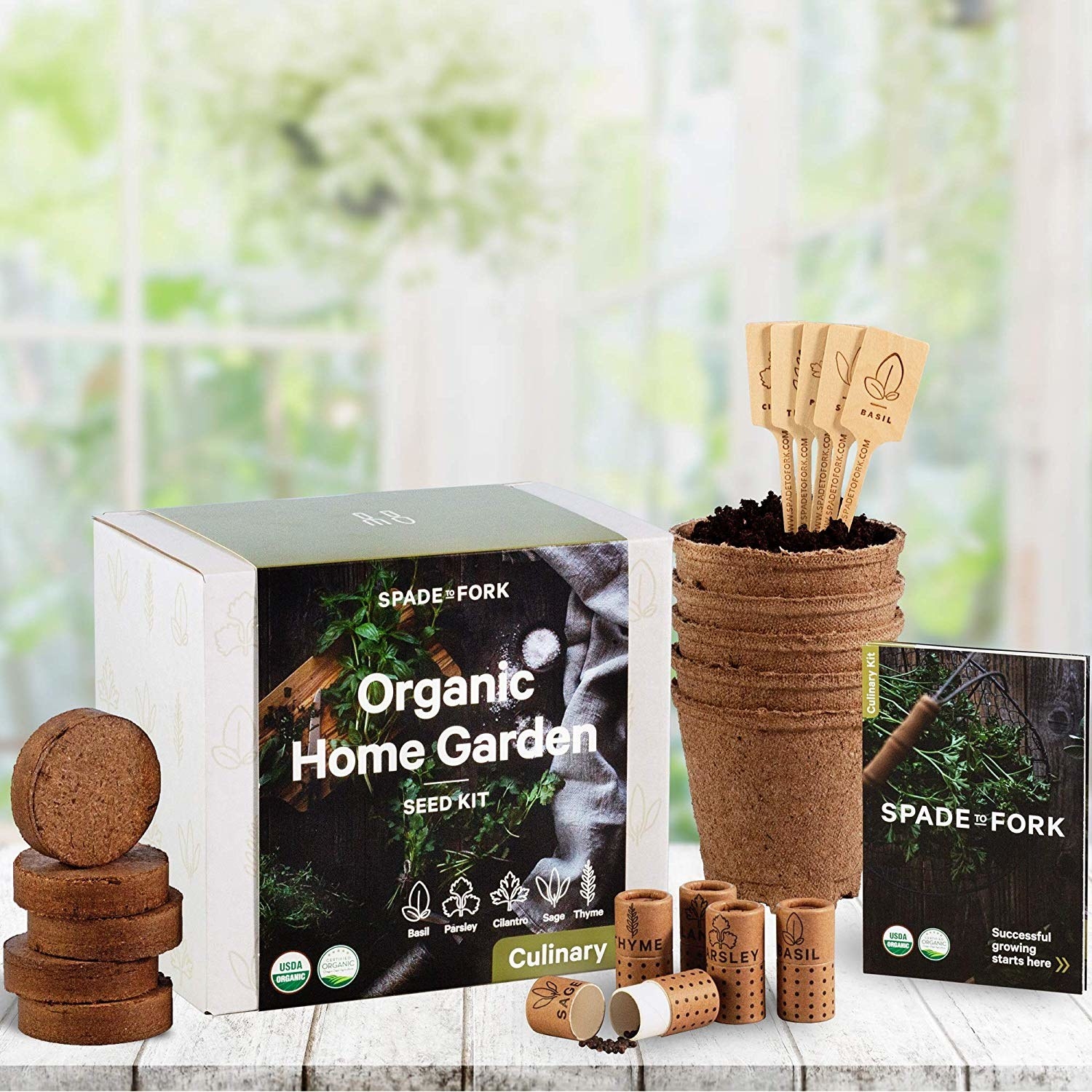
31. Heck, you can even sprout your own veggies using leftover kitchen scraps. Here's an in-depth explainer on which veggies you can regrow ranked by difficulty.

On behalf of Mother Earth, we'd like to thank you for being so eco-conscious. 🌎🏆
Shopping for something specific? Check out BuzzFeed Reviews to find the best things for every budget!

